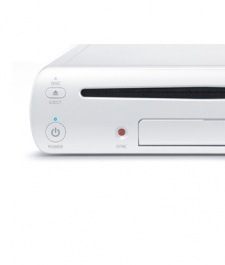It's only natural to pitch a next generation 'console war' as some kind of digital dick waving exercise.
True to form, as soon as the alleged specs for the next Xbox and PlayStation systems could be adequately compared last week, it was all about comparing the grunt and RAM.
Apart from the hideous imagery that conjures up, isn't the spec war an increasingly outdated barometer of a console's future success?
On the face of it, Sony will walk the next gen, by virtue of the PS4 boasting 50 percent more graphical power than the next Xbox.
But unless you're the kind of person who enjoys calculating relative Teraflop performance before bedtime, such matters will be of limited interest to consumers once these respective gaming systems hit the shelves.
No glory in power
Of course, we'd all like to have blazingly powerful, technically amazing gaming systems, but it's no longer the primary consideration.
So many innovations have arrived since the last generation kicked off more than seven years ago - many of them instigated by the rise of the smartphone. As a result, we're a more discerning and demanding bunch than ever.
But it'll take a lot more than increasingly realistic visuals to get people excited about the next generation.
It's not particularly controversial anymore to suggest that most gamers are already quite happy with the current level of visual fidelity. Indeed, the rather humble approach to the Wii U's graphical capabilities tells you everything you need to know about Nintendo's thoughts on the matter.
What many people seem to consistently overlook with Wii U is just how useful having the second screen is.
Far from just offering novelty controls and some cute new party games, by far the most unheralded thing about integrating a screen into the GamePad is the ability to play most of the Wii U games in 'Off TV' mode.
Turn-off, turn-on
Maybe most Wii U owners simply haven't bothered to try out Off TV mode yet.
Indeed, some of the key, best-selling games released so far (such as Zombi U and Nintendo Land) don't actually support it at all, by virtue of their desire to utilise the second screen for purely innovative in-game purposes.
But for the titles that do support it - such as New Super Mario Bros. U, Assassin's Creed 3, Sonic & All Stars Racing Transformed, Mass Effect 3, Darksiders 2 and numerous others - being able to continue playing on the GamePad screen when the TV is otherwise engaged is far better than you would ever imagine it to be.
For a start, there's no perceivable lag whatsoever. And far from ruining your 'big screen' experience, the overall fidelity of the GamePad screen and close viewing proximity makes it a more than worthy alternative.
Compared with the PS Vita's frustratingly laggy Remote Play feature, the Wii U wins hands-down, and finally gives gamers a viable option to carry on playing their 'hardcore' games of choice when housemates and partners are hogging the TV.
Can't take it with you
But the limitations of the Wii U's Gamepad are there for all to see, however.
The fact that you can only play within a limited range curtails the usefulness of such features, for instance. It ultimately makes you pine for a gaming system that's flexible enough to allow you to play your games both on the big screen, or on the move, with no loss of quality.
My vision of gaming utopia can't be far off. Sony has already demonstrated how a unified gaming ecosystem can work, with its forward-thinking Cross Play and Cross Buy initiative, where you buy one version (on PS Vita or PS3), and get the other free.
Better still, it integrates cloud saving into the process, allowing you to continue your progress on whatever system suits you best at any given point.
But what's ultimately halting Sony in its tracks is the fact that most people aren't particularly sold on the idea of owning another fairly pricey handheld gaming console. Perhaps they already have a smart device, or plumped for a 3DS, and can't quite identify a true system seller. It's a fair point.
So for a next generation system to really capture people's imagination, I think Sony and Microsoft have to go one step further and release a system that's not only a kick-arse piece of kit, but one that gives players total convenience on a level that makes them feel good about being locked into their ecosystem.
You only have to look to Apple to see how effective it can be when you're 'locked-in' - as anyone who owns an iPhone, alongside their Macbook, iPad and iMac will ruefully attest. Once you're in, boy is it hard to justify getting out.
So for Sony and Microsoft, they have to think about the ecosystem first and foremost, and the best way to do that is to integrate full portability into the equation.
Nintendo, as we've seen with Wii U, just stopped short of providing that kind of convenience, simply because the pricing of such a system would have presumably made it a non-starter.
For Microsoft and Sony to offer that kind of product, it also faces similar pricing challenges. But unless they find solutions to them, all it's offering, once again, is a box that only plays games on your TV, and in 2013 that's no longer a big enough draw for everyone.
What most gamers want today more than anything, is convenience, and the first company to truly take advantage of that won't just win the next generation, but potentially many more.
Opinion: Convenience will win the next console generation - not digital dick waving
Mobile has changed the game























